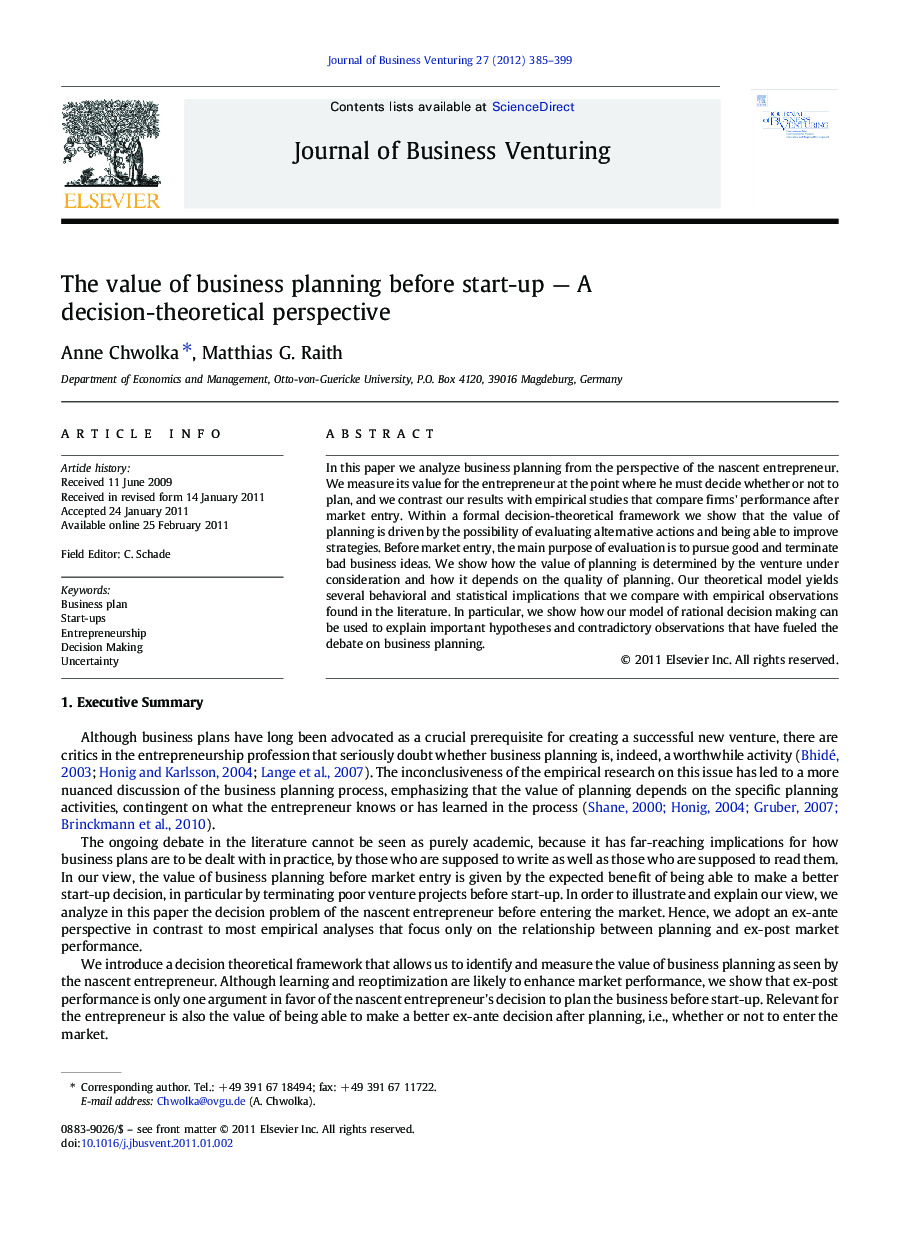| Article ID | Journal | Published Year | Pages | File Type |
|---|---|---|---|---|
| 1019635 | Journal of Business Venturing | 2012 | 15 Pages |
In this paper we analyze business planning from the perspective of the nascent entrepreneur. We measure its value for the entrepreneur at the point where he must decide whether or not to plan, and we contrast our results with empirical studies that compare firms' performance after market entry. Within a formal decision-theoretical framework we show that the value of planning is driven by the possibility of evaluating alternative actions and being able to improve strategies. Before market entry, the main purpose of evaluation is to pursue good and terminate bad business ideas. We show how the value of planning is determined by the venture under consideration and how it depends on the quality of planning. Our theoretical model yields several behavioral and statistical implications that we compare with empirical observations found in the literature. In particular, we show how our model of rational decision making can be used to explain important hypotheses and contradictory observations that have fueled the debate on business planning.
Research Highlights► We employ a decision-theoretical approach to analyze the value of business planning. ► In contrast to studies of market performance, our perspective is that of the planner. ► We show that the value of planning is driven by the possibility of avoiding failures. ► We show why better planning may plausibly lead to fewer rather than more startups. ► Our analysis helps to explain empirical, sometimes contradictory observations.
